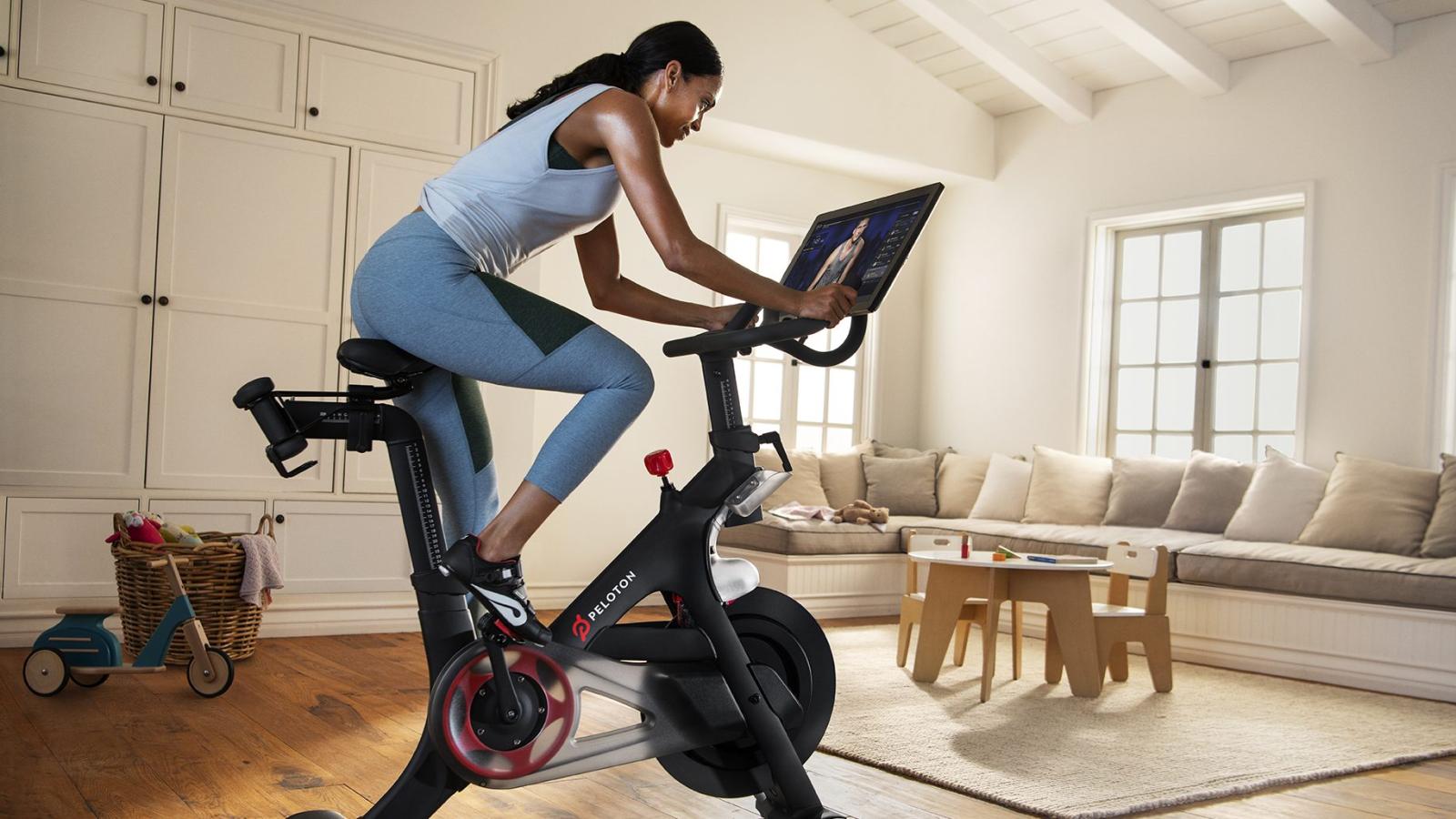It’s difficult to imagine a better year for home fitness juggernaut Peloton Interactive.
Thanks to COVID-19, last spring suddenly millions of people all over the world were stuck at home, unable to work out at the gym, and with very little to fill their time. Home workouts were the perfect solution, and Peloton was the perfect provider to take advantage.
They already had their stationary bikes in more than a million homes. They had been building out a network of trainers and content providers for several years. And they had the name recognition to take over the market.
So they did.
In 2020, the company doubled its annual revenues to $1.8 billion, nearly tripled its user base to more than 3M people, and saw its fourth-quarter sales surge 172%, well exceeding even the most optimistic forecasts heading into the year. Its products are now becoming so popular that the supply chain is starting to feel the strain, with delays of 6-10 weeks for some pieces following the holiday season.
The global fitness market is worth roughly $100 billion, mostly tied to health club memberships, and Peloton is leading a larger trend toward exercising at home. According to a recent report by market analyst Valuates Reports, the online fitness market alone could be worth $59 billion by 2027.
Remember last fall when Peloton was getting heat for its “sad wife” ad campaign? After what turned out to be the perfect year for home workouts, that seems like a lifetime ago.
Don’t forget Peloton’s IP
But it’s worth pointing out that this success didn’t happen overnight. The company’s intellectual property strategy has played a big part.
First, Peloton Interactive has about 70 pieces of published IP, of which six are issued utility patents, seven are design patents, and the rest are pending patent applications. Most of this IP relates to networked exercise systems and methods of use, which are not particularly strong and are actually relatively easy to get around, but it’s a decently-sized portfolio for a company that’s only been around since 2012.
But, even with all that, Peloton was sued for patent infringement last month by a company called Mad Dogg Athletics that created the spinning indoor cycling program in 1994 and later developed connected home spinner bikes. Mad Dogg’s Spinning Digital and Spinning Digital+ platforms allow riders to connect directly with a spin coach for session plans and motivation via phone tablet or smart TV.
Sound familiar?
As described by the company’s co-founder and CEO, John Baudhuin: “We revolutionized the indoor cycling category in 2008 with the eSpinner® bike which featured the world’s first touch-screen display designed to bring instructor-led coaching and power training straight to the rider’s home. Peloton has built its business by freeriding on Mad Dogg’s patent-protected innovations.”
Fact: Mad Dogg Athletics was an early pioneer in connected bikes, having started filing for patents back in 2005. They have several issued patents related to the technology from a decade-plus back and have been filing additional patent applications over the last few years as Peloton became more prominent that would also apply to Peloton products.
This isn’t a forgotten patent portfolio, but an actual operating company that is in the same space as Peloton. It’s a textbook patent licensing play. That is, they won’t be considered a patent troll because they are an operating company; they have legitimate standing in court to go after Peloton because they are a direct competitor of Peloton and they’ve got issued patents with priority dates as far back as 2005.
Looking at the file history of the Mad Dogg Athletics patents, they are solid. They’ve got some good system claims that Peloton will have a hard time arguing around. This won’t just disappear for Peloton.
And the latest twist — Peloton has agreed to acquire Precor for $420M, the ubiquitous brand you see on workout machines at gyms everywhere. It so happens that Precor is the proud owner of 500+ pending and issued patents worldwide, including several issued patents outside of the U.S. I view this as a combination offensive and defensive strategy to fend off potential competitors in the business and legal arenas.
Lessons to be learned here:
- IP still matters, no matter how “new” your business model is: Do your homework to make sure your product isn’t going to step on other people’s IP.
- Know what your competitors are up to: If your primary competitor has patents, be sure to have a strategy to get around them or deal with them in other ways.
- Don’t ignore whatever IP they might have: If your primary competitor approaches you with licensing talks (I assume Mad Dogg Athletics did approach Peloton — you’d have to demonstrate you did approach the defendant company before you sue them in court), don’t ignore them, especially if you’re having a hard time building your own patent portfolio.
- When in doubt, buy your way in: If you’ve got the money, you can always acquire a sizable patent portfolio after the fact just as Peloton is doing with the Precor buy. It’s amazing what an 11-figure market cap will do sometimes.
There is a good chance that the winning streak for Peloton is just getting started. Its stock soared 350% in 2020 and many estimates are for additional gains in 2021 even as gyms start to reopen. Too many people have gotten used to working out at home (and have too much invested in their Peloton hardware and subscriptions) to ever go back.
But the real story for Peloton in 2021 and beyond is going to involve its patent portfolio and the strategic approach the company is (and sometimes is not) taking with its IP. The Mad Dogg lawsuit is a good example of what can happen when you don’t take a competitor seriously enough, and the price tag for the Precor acquisition shows just how much it can cost to buy into a patent portfolio after the fact.
Ready to learn more about what your IP could mean for your business? Contact us today to get started.





